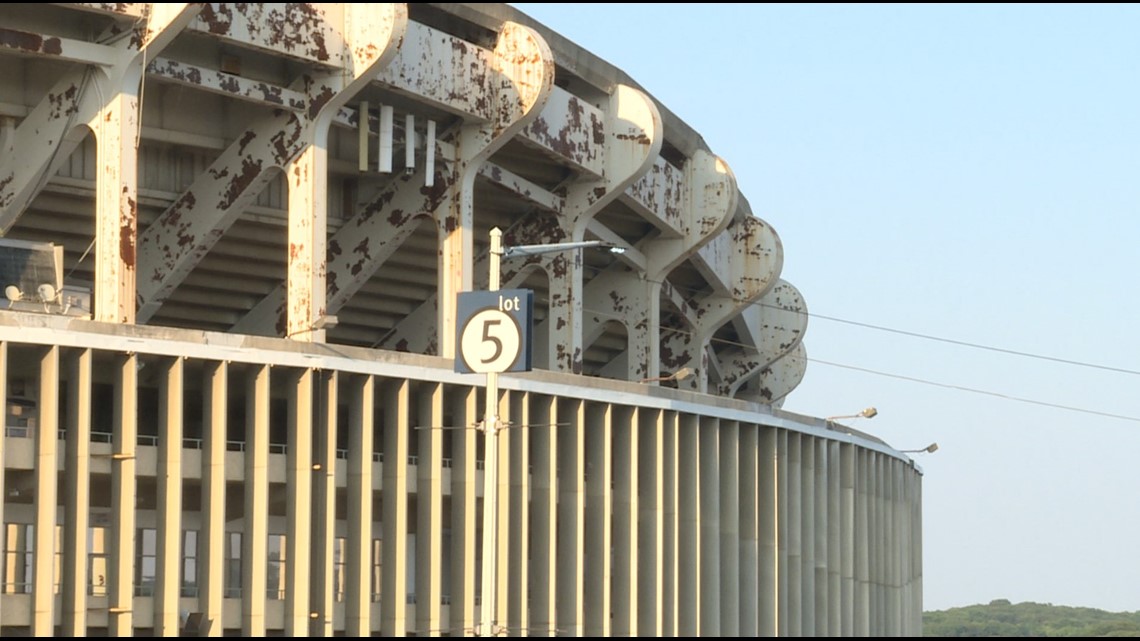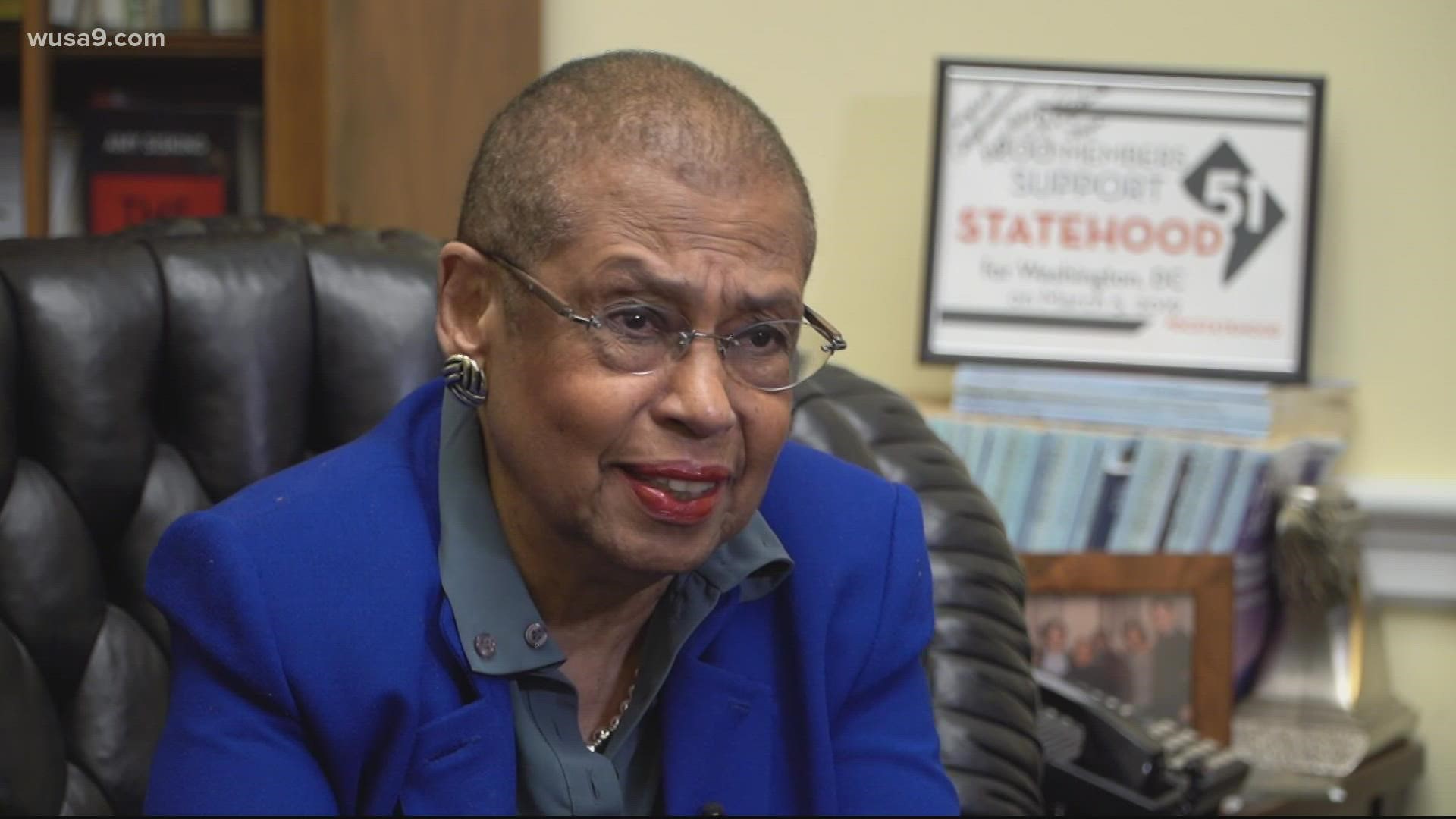WASHINGTON — Dreams of a Washington Commanders return to the District are fading like the paint on its one-time home, RFK Stadium. And now, one of Washington, D.C.’s top leaders is calling plans to have Commanders owner Daniel Snyder build his new stadium on the old RFK site a “Hail Mary.”
“Not only does D.C. not have control of the land, we now have Maryland and Virginia wanting the team,” said D.C.’s delegate to Congress, Eleanor Holmes Norton.
“So, if D.C. doesn't find a way, pretty quickly, the team is going to go to the first bidder.”
With the Commanders' current lease set to run out after the 2026-2027 football season, the team is expected to make a decision on the location of its new stadium by the end of the year.
Holmes Norton has spent years trying to clear the way for Snyder to build a new football stadium on the RFK site. It's something that Snyder also has tried to accomplish behind the scenes since 2018, according to published reports.
After the team changed its name, even D.C. Mayor Muriel Bowser threw her support behind the plan.
“I've said from the very beginning that I think Washingtonians want to have their team play in Washington, just like all of the other professional sports teams,” Bowser said told WUSA9 on Feb. 26. “We have an ideal location at RFK.”
But the stadium idea is facing an all-out blitz from some members of D.C. Council.
“It doesn't make sense,” said Councilmember Charles Allen, arguably the loudest, most passionate voice against using the District’s last, best plot of undeveloped land for Dan Snyder’s new mecca.
“NFL stadiums are proven uniquely to be poor economic drivers. They host eight or 10 home games a season, let's throw in an occasional bowl game and occasional concert,” Allen said. “It's dark and empty 330 days out of the year. That's not a good economic investment for us to spend hundreds of millions of dollars to benefit a billionaire. It's also just a really bad use of the land.”
It's land that Allen and others say should be used for green space, affordable housing and retail.


“You got transit, you got the opportunity to build more housing, more affordable housing, family-style housing, so it's not just a bunch of condos,” Allen said. “Green space, park space, new jobs, new retail, and to have the Anacostia River be connected into that community. That's the vision.
“I think that people respond to that and people are excited about that potential. But as long as we're still debating whether or not, you know, building Dan Snyder Stadium is a good idea or not, we're still stuck.”
That’s because when it comes to redevelopment of the RFK site, with or without a football stadium, there’s a catch. Since all 190 acres are federally owned, nothing can be done with the RFK campus until Congress changes the terms of its current lease with the city, or lets D.C. buy the land from the government outright.
And that's even if it had the full support of D.C. government.


“It certainly doesn't help that D.C. is not even united on the use of the land,” Norton said.
Norton said the recent Congressional hearing into sexual harassment allegations against Snyder and other members of his staff have only further dimmed the chances Congress would help the billionaire by clearing the way for his new football stadium.
And with the prospect of Republicans regaining control of Congress during the midterm elections, Norton said the city’s window to take over the RFK site is about to slam shut.
“Not taking advantage of this opportunity, when Democrats are in charge, is a lost opportunity,” Norton said, adding the inaction amounts to a failure of leadership.
“On both sides,” -Norton said. “Of the council and the mayor.”


While the debate over the future of the RFK site continues, Events DC, the agency responsible for making the most of the space while it sits empty, is moving forward with plans to tear down RFK, recently awarding a contract for demolition of the 60-year-old stadium.
But Events DC tells us with a number of regulatory steps still to take, they don’t anticipate starting demolition, until sometime next year at the earliest.
“Visually, people will be able to conceptualize better once the stadium is removed,” said Greg O’Dell, president and CEO of Events DC. “But we have a pretty extensive process ahead of us. There's a regulatory process, there's both federal and local processes that we have to follow.”
O’Dell estimated it would be 18 months before the demolition begins.
WUSA9 made multiple attempts to reach Mayor Bowser for additional comment on the city’s plans for the RFK site, but has yet to hear back.

